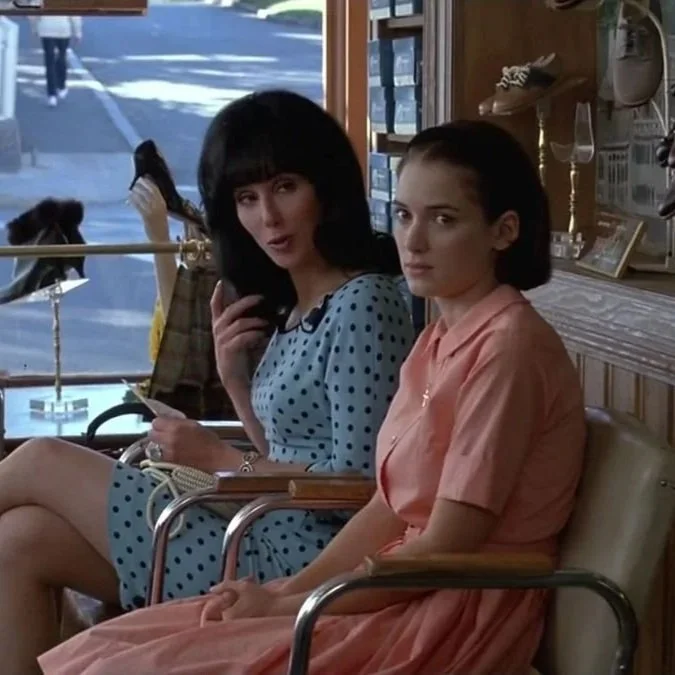If You're A Woman Over 40, Here's Why You Might Be Losing Interest In Sex
It’s not just hormones.
by The Candidly Team
First off, let’s get this out of the way. Women over 40 want to have sex. Or at least, many of us do. Any woman’s feelings of desire are personal to her. And there’s certainly more than one factor going into it at any given time.
However…
Experiencing a decrease in libido is common. And frustrating.
For millions of over-40 women, understanding why our physical urges and desires may be waning to a point we don’t especially enjoy is something worth exploring.
And recent research shined a whole new spotlight on one enormous and near-universal reason. It was bigger than both hormones and relationship factors. And while it didn’t shock us, it did sort of shake us up.
To break down what it is and what can be done about it, we talked to human sexuality professor Dr. Nicole McNichols from from University of Washington. She’ll take it from here.
1. You talk about a pretty new study saying that there's one thing even bigger than hormone changes that affects the declining sex drive in women over 40? Can you say what that is and why it is or maybe reeeeally isn't that surprising?
Yes! A recently published study in the Journal of Sex Research found that the biggest predictor of declining libido in middle aged women is…. exhaustion. This study was unique because a) it looked at and compared exhaustion to a whole host of other factors that have historically been blamed for declining desire in women including the hormonal shifts and other symptoms of menopause and b) introduced qualitative data in the form of interviews with women.
On the one hand, the fact that exhaustion is the primary culprit may seem obvious to many women, (Duh!!) but the fact that this study cemented that fact into the ground is important for two reasons.
First, it brings to the forefront just how much exhaustion gets in the way of sexual wellness, even more so than relationship factors and hormone shifts.
Second, it suggests that treating women for menopause in mid-life isn’t enough - there needs to be a focus on just how much she has on her plate and is dealing with.
2. Other than completely changing the groundwork of modern society, how can a woman experiencing exhaustion approach her desire for sex differently, because obviously those responsibilities aren’t going anywhere? Is there a mindset you should strive for? An exercise you can try to get you in a headspace where you’re more open to or wanting of sex?
Well, first of all, I DO think that we need to change the groundwork of modern society so that more support is put into place for women and so that social norms are changed. But individually I think it’s about asking ourselves questions that challenge the idea that we need to do it all and be perfect. Lightening our loads isn’t self indulgent - it’s important for our own health and that of our relationships.
3. Given that our to-do list will be there no matter what, what are some very specific ways to connect to the feeling of wanting sex without focusing on the ever-present practical aspects of life?
Set boundaries with yourself.
Don’t be on your phone after a certain time at night.
Don’t return late night emails.
Get sleep.
Exercise.
Do things that bring you pleasure in other aspects of your life.
4. You talk about being in the mood as not necessarily being black or white but more of a gray area where there's potential to want sex. Why is this a helpful way to look at your own sexuality?
Looking at desire as if it’s black and white ignores the fact that sometimes it begins as a slow burn that takes time to develop. It denies the fact that sometimes we need to be patient with our bodies and to “trust the process” and allow it time to unfold. And it pressures us to know exactly what we want when the reality is that sometimes we don’t yet know and need time to try it out and decide.
Obviously, no one should engage in a sexual encounter that they don’t want. But in the context of a longer relationship where responsive desire is often the norm, it’s important to appreciate the nuance.
5. Are there any “bad habits” you think are helpful to give up that might give us more energy toward sex?
The usual - get off your phone, don’t work late at night, give yourself time to relax and unwind at night.
But beyond that, what I think is underappreciated, is to take active steps to do things that bring you pleasure, whether it’s a bath, getting a massage, meditating, spending a night with friends, or reading a juicy book.
Enjoying other forms of pleasure in our lives will enable us to have an easier time experiencing it in the bedroom.
6. How can we involve our partner in this process without creating unrealistic expectations? In other words, is there a way of communicating what helps us relax, get in the mood, or any ways we can approach them that you’ve found can be particularly helpful?
Yes - talk about the hottest sex you ever had and identify what the context and mood were surrounding it. How can you recreate those feelings, whether it was things like candles, a romantic dinner or getaway, or after a conversation where you both really felt connected. Maybe it was after you were both on a long trip and had a little distance before reuniting? Whatever it was, take steps to recreate that.
And you can watch Nicole break things down a bit more below:
This interview has been edited for length and clarity.
This article is for informational purposes only. It is not intended to be used in place of professional advice, medical treatment, or professional care in any way. This article is not intended to be and should not be a substitute for professional care, advice or treatment. Please consult with your physician or healthcare provider before changing any health regimen. This article is not intended to diagnose, treat, or prevent disease of any kind. Read our Terms & Conditions and Privacy Policy.






